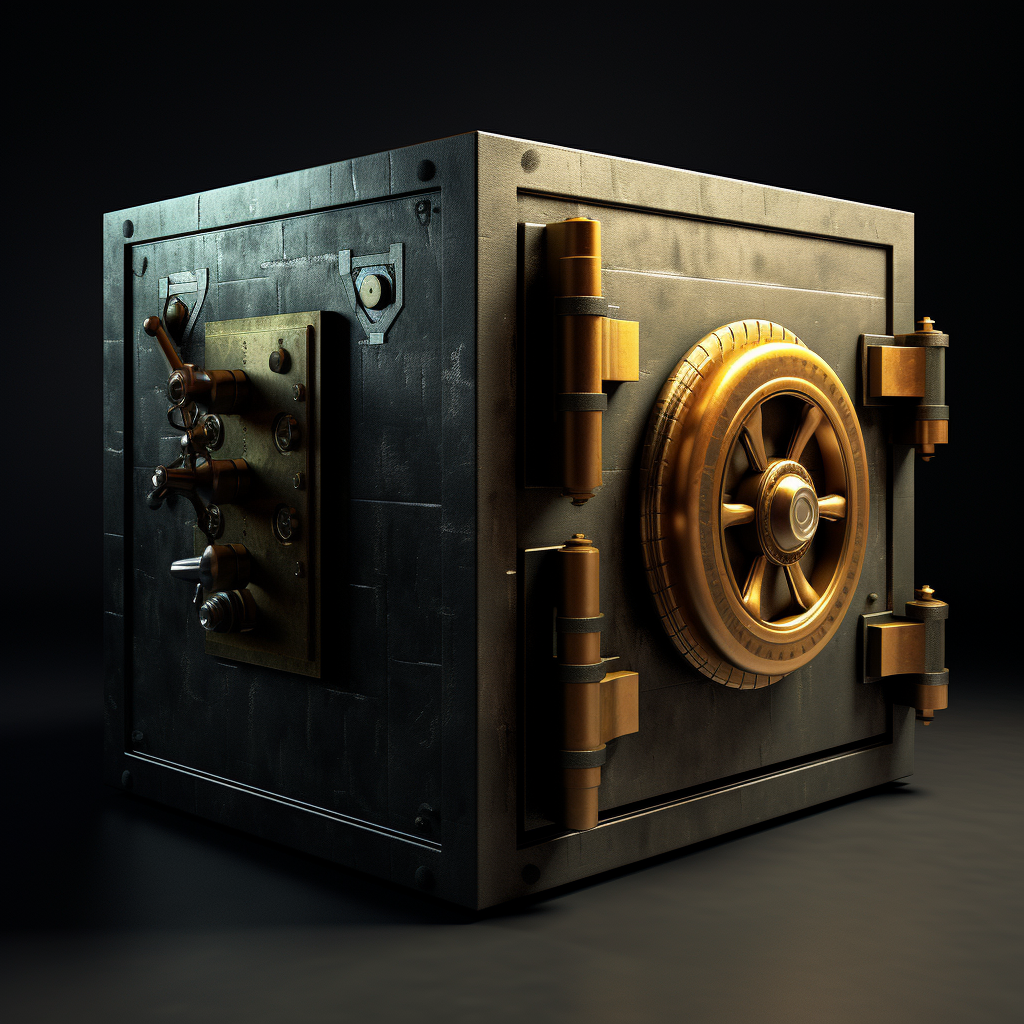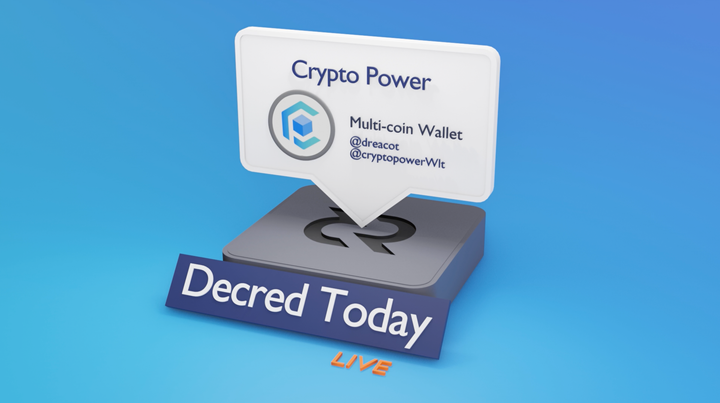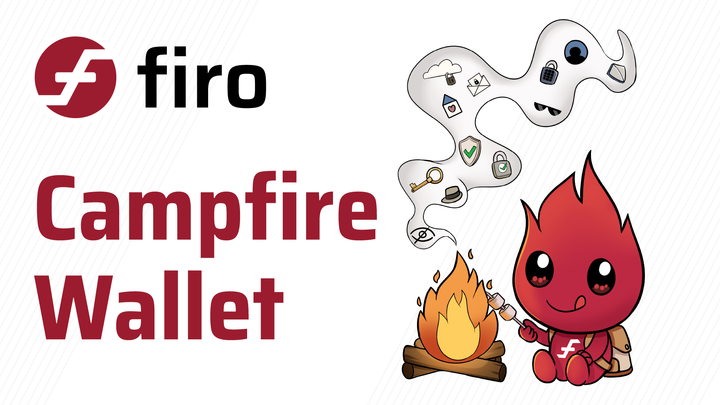As a bit of an old timer crypto romantic, keeping my digital coins safe and secure has always been a top priority.
Introduction:
In today's world of digital money, it's really important to keep your cryptocurrencies safe. Cryptocurrencies offer a chance to grow your money and try new things, but they also come with some special challenges, especially when it comes to keeping them safe. Whether you're a crypto expert or just getting started, it's essential to know how to keep your digital money protected. This article is the first of a three part series and will explain why crypto wallets are important and give you helpful tips on how to make sure your digital coins stay safe and sound.
I. Understanding the Basics of Cryptocurrency Wallets
Before delving into the finer details of securing your digital assets, let’s start by understanding what cryptocurrency wallets are and why they are fundamental:
1.1 What is a Crypto Wallet?
• Definition and purpose of a cryptocurrency wallet.
A cryptocurrency wallet is a digital tool designed to securely store, manage, and interact with cryptocurrencies such as Bitcoin, Ethereum, Decred and many others. It serves as the virtual equivalent of a physical wallet, but instead of holding physical cash and cards, it stores cryptographic keys that allow users to access and control their digital assets on a blockchain. The primary purpose of a cryptocurrency wallet is to provide a secure and user-friendly means for individuals to manage their cryptocurrency holdings. It achieves this by generating and safeguarding private keys, which are used to sign transactions and provide ownership proof of the associated cryptocurrency tokens. Wallets come in various forms, including software wallets, hardware wallets, paper wallets, and mobile wallets, each catering to different needs and preferences of users in terms of security and accessibility. Ultimately, these wallets play a crucial role in enabling individuals to send, receive, and store cryptocurrencies while ensuring the integrity and confidentiality of their digital assets.
For more details please read more here:
https://www.coinbase.com/learn/crypto-basics/what-is-a-crypto-wallet
• Different types of crypto wallets: hot wallets vs. cold wallets.
Cryptocurrency wallets come in two primary categories: hot wallets and cold wallets, each offering distinct advantages and trade-offs. Hot wallets are connected to the internet and include online wallets, mobile wallets, and desktop wallets. They provide quick and convenient access to cryptocurrency funds, making them suitable for regular transactions. However, their constant internet connection makes them more susceptible to cyberattacks and hacking attempts, making them less secure for long-term storage.
On the other hand, cold wallets, including hardware wallets and paper wallets, are designed to store cryptocurrencies offline, enhancing security by isolating the private keys from potential online threats. Hardware wallets are physical devices that store private keys and require physical access to initiate transactions, making them highly secure but less convenient for frequent trading. Paper wallets, on the other hand, involve printing out private keys and public addresses on paper, providing an offline storage option that is immune to online threats but can be vulnerable to physical damage or loss.
The choice between hot and cold wallets depends on individual preferences and the specific use case. Hot wallets offer accessibility and convenience for everyday transactions, while cold wallets prioritize long-term security and protection of cryptocurrency assets. Many users opt for a combination of both to balance ease of use with robust security measures.

1.2 Public and Private Keys
• The role of public and private keys in crypto wallets.
Public and private keys are fundamental components of cryptocurrency wallets, playing a pivotal role in securing and facilitating transactions within the blockchain network. The public key serves as an address or destination for receiving cryptocurrency. It is a cryptographic representation of a user's wallet address and can be freely shared with others to receive funds. In contrast, the private key is a closely guarded secret, known only to the wallet owner. It is used to sign and authorize outgoing transactions, effectively proving ownership of the cryptocurrency associated with the public key. The private key must be kept secure and never shared, as anyone with access to it can control and transfer the cryptocurrency. Together, these keys form a cryptographic pair, ensuring the integrity, confidentiality, and security of cryptocurrency transactions, making them an essential aspect of cryptocurrency wallets.

• How they enable transactions and secure your funds.
Public and private keys are the linchpin of transaction security in cryptocurrency wallets. When a user initiates a transaction, their private key is used to create a digital signature that proves ownership and authorizes the transfer of cryptocurrency. This signature is then matched with the user's public key, which acts as the recipient's address, and verified by the blockchain network. This two-key system ensures that only the rightful owner of the private key can authorize transactions from their wallet, preventing unauthorized access and fraudulent activity. Additionally, the encryption algorithms behind these keys make it exceedingly difficult for malicious actors to forge or decipher the keys, providing a robust layer of security. By enabling secure transactions and safeguarding the associated funds, public and private keys are the cornerstone of trust in the world of cryptocurrencies.
A great explanation:

As a bit of an old timer crypto romantic, keeping my digital coins safe and secure has always been a top priority. One of the key elements of my security strategy is using a hardware wallet, specifically a Ledger device. This physical wallet provides an extra layer of protection by storing my private keys offline in a tamper-proof environment. When I want to access or transfer my cryptocurrencies, I connect the Ledger to my computer, sign the transaction securely on the device itself, and then disconnect it from the internet. This process ensures that my private keys remain isolated from online threats, such as malware or hacking attempts.

In addition to my hardware wallet, I also use the Decrediton wallet for securely storing and managing my Decred (DCR) holdings. The Decredition wallet is a user-friendly desktop wallet designed specifically for Decred. It offers features like staking, ticket purchasing, and voting in Decred's governance system. What makes it particularly secure is that it downloads and validates the entire Decred blockchain, enhancing the wallet's independence and trustworthiness. By running a full node locally, I have more control over my Decred transactions and can be confident in the network's security.

The combination of a Ledger hardware wallet for my general cryptocurrency holdings and the Decrediton wallet for my Decred-specific needs provides me with a robust and secure setup. It allows me to enjoy the benefits of blockchain technology while minimizing the risks associated with online threats. With these tools, I can confidently manage my digital assets, cast votes in Decred's governance system, and rest assured that my cryptocurrencies are well-protected.
This concludes part one of our three part series on keeping your digital coins safe and secure. Next week we will go into detail on the types of wallets, the advantages and disadvantages, and the best practices for Crypto Wallet security.










Comments ()